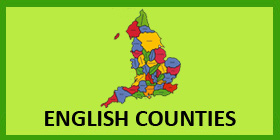




Back to the Blog Archives Index Page

MAY 2025
02 May 2025
09 May 2025
16 May 2025
Friday 2 May 2025.
Molly writes
The first of May marks the peak of Spring, half way between spring and summer, a time where flowers, trees and plants are all in bloom
and at their peak before the summer dries them all up. It is on this day that Beltane is celebrated, a Celtic tradition of giving thanks
for the sun and the fertile land below. A time to revel in the warmth of the sunshine as well as the growth, vitality and fertility that it
promises. Traditionally, fire is at the centre of this festivity in dedication to the gods to ask for their divine blessing of abundance.
Within pagan and Celtic beliefs, there are many gods and deities that represent different things in nature. During Beltane, they call upon
gods such as the mother earth goddess and the Greenman, who represent fertility. It was important to Pagans to pray for fertile land as they
heavily relied upon it for food and water.
Like Samhain, Beltane is one of the 4 fire festivals in the Pagan wheel of the year and like Samhain (the pagan roots of Halloween)
they believed that the veil was thin between our world and the spirit world, enhancing our ability to interact and ask for the favour of the gods.
A huge fire is lit, as part of the ritual of protection over livestock and crops. Sometimes they'd walk their cattle around the fire and it's known
that lovers would jump over it in the hope they'd be blessed with love and fertility. Many would plan for a wedding around this time or a hand-fastening
ceremony that bound and blessed lovers together.
It is also believed that around this time the fairies and the fae begin to awaken. The May Queen was seen as the queen of the fae and also
known as the earth goddess Flora. In modern May Day traditions, a young lady is crowned as a symbolic May Day Queen and is adorned with flowers and
wreaths, along with a flower crown. Another tradition that you may have heard of before, is maypole dancing. Everyone grabs a ribbon and dances together
around the pole which is usually made from the Hawthorn tree. There are particular dances that create a wonderfully plaited maypole at the end, symbolising
life and renewal and often single young men and women would partake in the dances in hope they'd find a partner.
The full moon for this month is known as the flower moon and the month of May is thought to be named after Maia who was seen as an ancient
earth goddess who presided over plants and flowers. Make it your goal this month to stop, smell and admire the glorious flowers. As we move into the
brighter half of the year our energies become more extroverted, more focused on the outside world and our bodies, rather than the deep inner soul reflections
we tend toward in the winter. Spend time practising pleasure, joy and hope and tend to the seeds that you sowed at the beginning of the year.
![]() Back to the top
Back to the top
Friday 9 May 2025.
Richard writes
Our School of the Air has been going for nearly four months now and, as with any new venture, you learn as you go and, unless you're a bit
stupid, you make changes to improve things. That is how we do things.
Firstly we have been blown away by the number of views our videos have been getting and the number of subscribers to our YouTube channel.
We do not make a profit at all from our work so we are not dependent on viewers of our videos or visitors to our site. Obviously, as we
seek to get a few sponsors to allow us to continue, such things matter to them but, for us, if just ten children were benefiting from what
we do, we'd be happy and feel we have achieved one of our aims.
I spent several years at school, and later, studying statistics. I know how meaningless they can be. I know how easy it is to
entice people to watch something that has no relevance and no benefit to them apart from, maybe, a short piece of entertainment or a
pointless view into someone else's daily life. If that is what you want, if that is what they want, feel free to continue.
Our wish, though, is to try to give children a better start in life, and, here he goes again, arouse their curiosity, ignite their
imagination and release their creativity. At the same time to make them more aware of the real world outside that tiny little screen that for
some seems to be the be all and end of all in life.
I may just have spent three paragraphs saying a simple fact. Molly and I are very happy with how our School of the Air has been
received and how it is being used. We are also happy with the rest of our website and how much benefit that can bring to learning.
Returning to paragraph one and I have to state that we are not stupid. This means that from next week we are making a few changes.
Our Early Years material on Tuesdays and Thursday will stay as it has been from the start. Friday fun will also not change and Owlbutcast will
spring onto your screens every other Tuesday to help young children make sense of what they may hear on the news (this maybe an almost impossible
task but thank you to the person who said our edition about electing a new Pope was so accurate but made it all so simple).
That leaves Monday and Wednesday. Monday has seen us begin our virtual journey through the counties of England. As far as research and
production are concerned it is, without a doubt, the most time-consuming videos we produce. As we are still fighting to find sponsors and actually keep
going, Monday's videos take up too much time. Next Monday, when we reach Hampshire, will see us pause this section until September this year. On resumption
it will continue weekly, with the usual half term and holiday breaks through till July 2026. By then you will be ready to follow our real journey around these
counties which, for you, will start in September 2026.
Wednesday will continue but we have decided that, rather than alternate our history and geography sections, we will take them in two complete parts.
History will now run through till December 2025, covering every period in our Times Past section. Our geographical Eating with our European neighbours will then
return and take us through till, once again, July 2026.
We hope that you can see why we have made these changes which is purely to give you a better experience. There is also one way you can help us to keep
this going. We have a Patreon page, link is here, on which, for as little as £5 a
month you can support us, get some goodies and gain a bigger insight into the work we do and who we are, If just 200 people subscribed at that rate or if 50
people subscribed at our £20 a month rate, we'd be virtually there without having to contact big business, be put on hold, transferred around a department
and end up being asked to send something by email and then never receive a reply.
This blog, our podcasts and our Music Makes Pictures section which we want you to become part of, will, for now, continue as they are but, if we get
enough patrons both the podcast and the blog may only become available through our Patreon page.
`
If indeed music does make pictures, I'll leave you with the words of Roger McGuinn and Chris Hillman way back in the 1960s. "Change is now, change
is now, things which seemed to be solid are not." That's got you flying (obscure clue) to Google hasn't it. Help us make that change and give a better start to young children.
![]() Back to the top
Back to the top
Friday 16 May 2025.
Richard writes
Over the next three weeks, rather than ask for your help to keep these pages active as Molly and I did last week, I want to talk about three aspects
of home educating. Let me begin by saying my experience of home educating (it must never be called home schooling because to me, and others, that
identifies it with going to school) began in 1962. In that year and the next year, I was home educated. In 1985-86 my own children were home educated
although home is not quite accurate as we travelling around the entire coastline of Great Britain for a year.
From 1995 until 2001 another child of mine was home educated during which time, in 1994-95 I did another journey but this time only around the English
coastline but followed by pupils at 50 English primary schools through a series of weekly newsletters. You can read all of this elsewhere on this site
but I wanted to write it as a precursor to these blogs. Then, in 1995, 1996 and 1997 I designed, wrote and published a set of resources specifically
for home educators. This website, which I now run with Molly, is also tailored for home educators although it can be used in schools.
I feel I speak from a certain amount of hands-on experience but I have also over the last 40 years made it a point to study learning and
education not only here in England but around the world. I'm going to write these three weekly blogs in probably the reverse order. This
week I am assuming you have decided to home educate and will talk about what you might need to think about. Next week I will look at the
reasons you may have made that choice and then, two weeks down the road, I'll attempt to go through what might, could, go wrong.
Here we go; part one. You have decided to educate your child at home. As I said earlier, never call it schooling. A School is a building;
it should really only be a noun. Whilst it is always good to have a pattern, be flexible. Take advantage of what you have decided to do.
Give your child a little bit of input. For example you may decide that formal lessons should take up three hours a day. Make sure your
child knows that there will be three hours each day. Each week you could, on Monday, provide a plan that fits in with your needs. In the
plan say when the three hours per day will take place. But, as I said, be prepared to be flexible. This is one of the many benefits of home
educating. It does not have the formality or rigidity of a school situation.
Five years ago people might have said to me "ah but work is rigid; 9 to 5. You need to prepare children for that". Nowadays, with more and
more people working from home, work, in some cases, has become more flexible too and so, in a way, home educating, self-discipline, is a
better preparation.
Another thing to consider and indeed appreciate is when learning can actually take place. There are so many situations that happen in life
which will lead to learning and skills children will need for later life. Going shopping in a supermarket is a prime example. Give your
youngster (obviously this is slightly age dependent but you can decide, indeed you will know, at what age your child can do things) but
give your child the list and let them choose the brand, within your guidelines, and get them to add up the cost. Cooking and using a recipe
is a fantastic way of learning numeracy and literacy skills. Wonderful if you need double or half the ingredients in the recipe. I can also
assure you that your child may not even realise they are learning but they will enjoy the responsibility you give them and feel they are doing
something worthwhile.
For 3 years, from age seven, my son, who had speech dyspraxia and didn't want to go to school, added up all the figures in my end of year accounts.
Doing something practical is a great way to learn, which is why on our site we have several sections which require a practical outcome.
However, a word of warning, even if you use our material or that of anyone else, home educating requires a fair amount of your time. You, the
facilitator of your child's learning. Sit your child down with a text book or an exam sheet and walk off and, in my view, they might just a well
be at school. I believe you should be encouraging curiosity, the quality every single child is born with. Think about it. How can I walk? How can
I talk? How can I put a bottle to my mouth and have some food? How can I make people know what I want? I'm sure that those thoughts and thousands
more are racing through every young child's mind and alongside that their imagination is running riot trying to imagine ways to do it.
When my eldest, and only, daughter, pulled a lava lamp off the top of our television by pulling on the lead we had foolishly left dangling, I like
to think her curiosity had meant she wanted to get a closer look at this multi-coloured thing she saw and her imagination kicked in and said what
happens if you pull this bit of something that seems to go up to it. Luckily she was completely unhurt and we learned our lesson.
The other thing you can do is give them space to be creative. Don't always step in to give them your knowledge and experience. If you do, and this
is why watching things on screens can be so bad, if everything is done for them, they will lose yet another trait they are born with, namely creativity.
Giving a Making with Molly episode as an example, Molly shows them how to make a flower vase. She makes one but allows creativity in the pattern for the
vase and even what to put in the vase showing examples from her time at her Forest School. Remember you guide, you mentor, you don't instruct that something
MUST be done a certain way.
Finally, in this rather long blog, there is one area where a school setting may, but only may, be better than home educating and that is in social contact.
However, from my own experience, there are many home educator clubs where children can meet others and, importantly, parents can interact and share with
others in the same situation. These clubs are quite often called craft clubs but I feel that while sharing in a task with others is important, more than
anything else it is the social contact that matters. My son who didn't attend school till he was 10 joined a local cricket club and trained with them twice a
week and played some games at weekends. I also got involved and helped with coaching and umpiring and my son would come along with me to those matches too.
The reason I said "may be better" is because while at school, during a highly influential part of a young person's life, you have no control over who they mix
with. While, when children grow, you cannot always choose their friends, at a young age, home educating, you can. A big fuss is made about what children can
access on line but harmful things can happen in the real world too. Schools can say no mobiles in class or even on the premises but, they can't ban actual
contact with other children. Over protective; maybe but this is your child you are taking acre of and preparing for the big wide world. Some may say that
children need to experience all sorts of behaviour. I would agree but not until they are aware of how some behaviour can be wrong and harmful.
No blog next week as it's half-term but I'll be back blabbering on again in 3 weeks time.
![]() Back to the top
Back to the top
![]()

